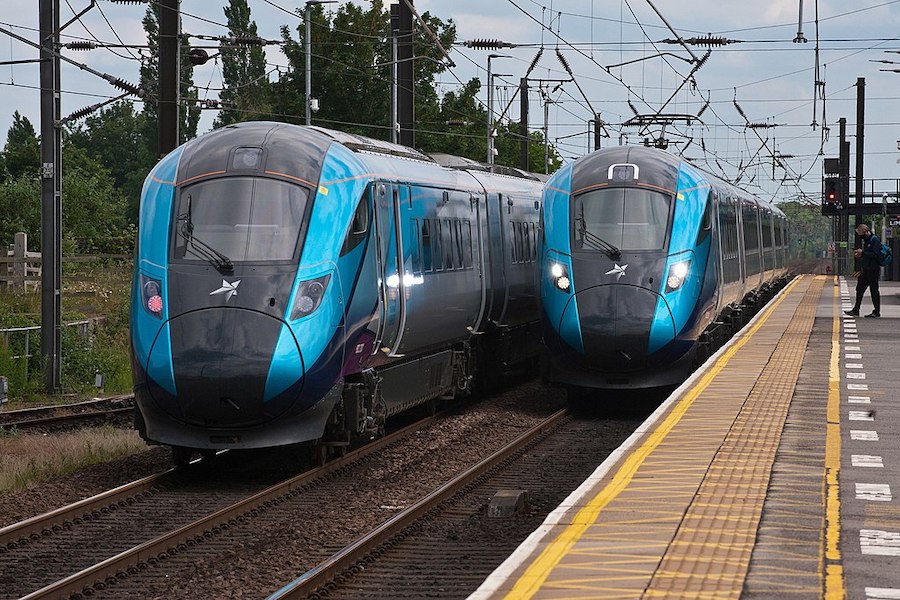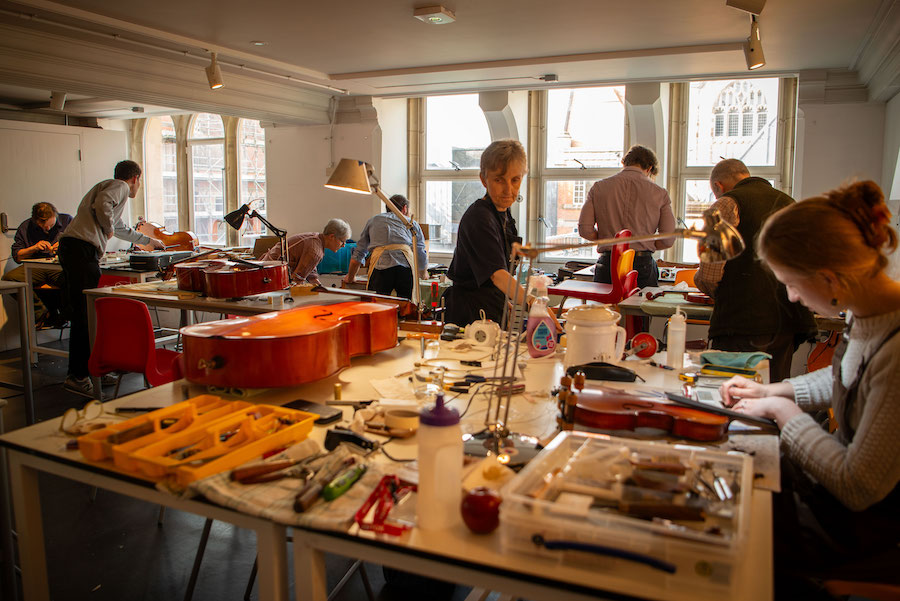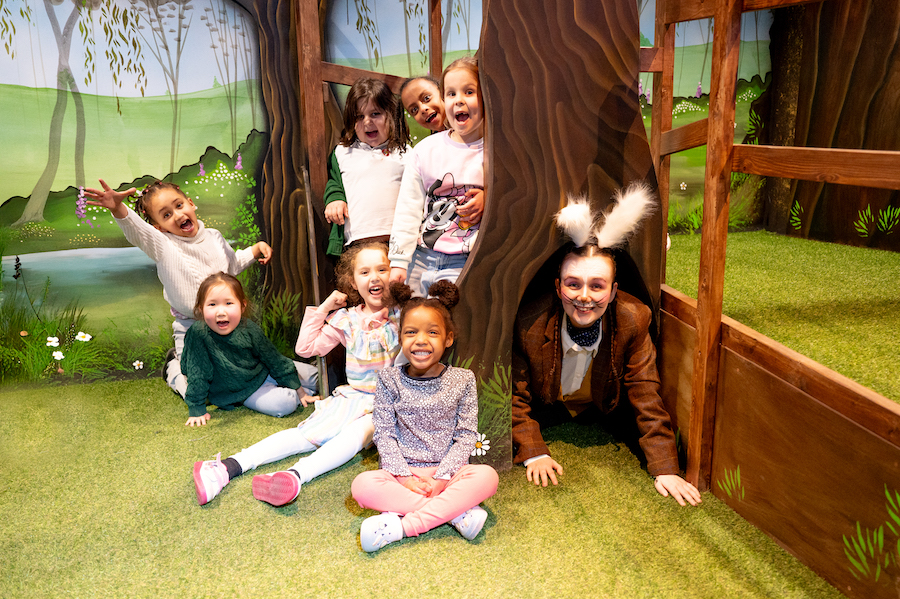Meet the award winning poet, screenwriter and artist who founded CRIPtic Arts
- Written by Connor Cooper
- Last updated 2 years ago
- LGBT+, Showbiz, Theatre, Uncategorized
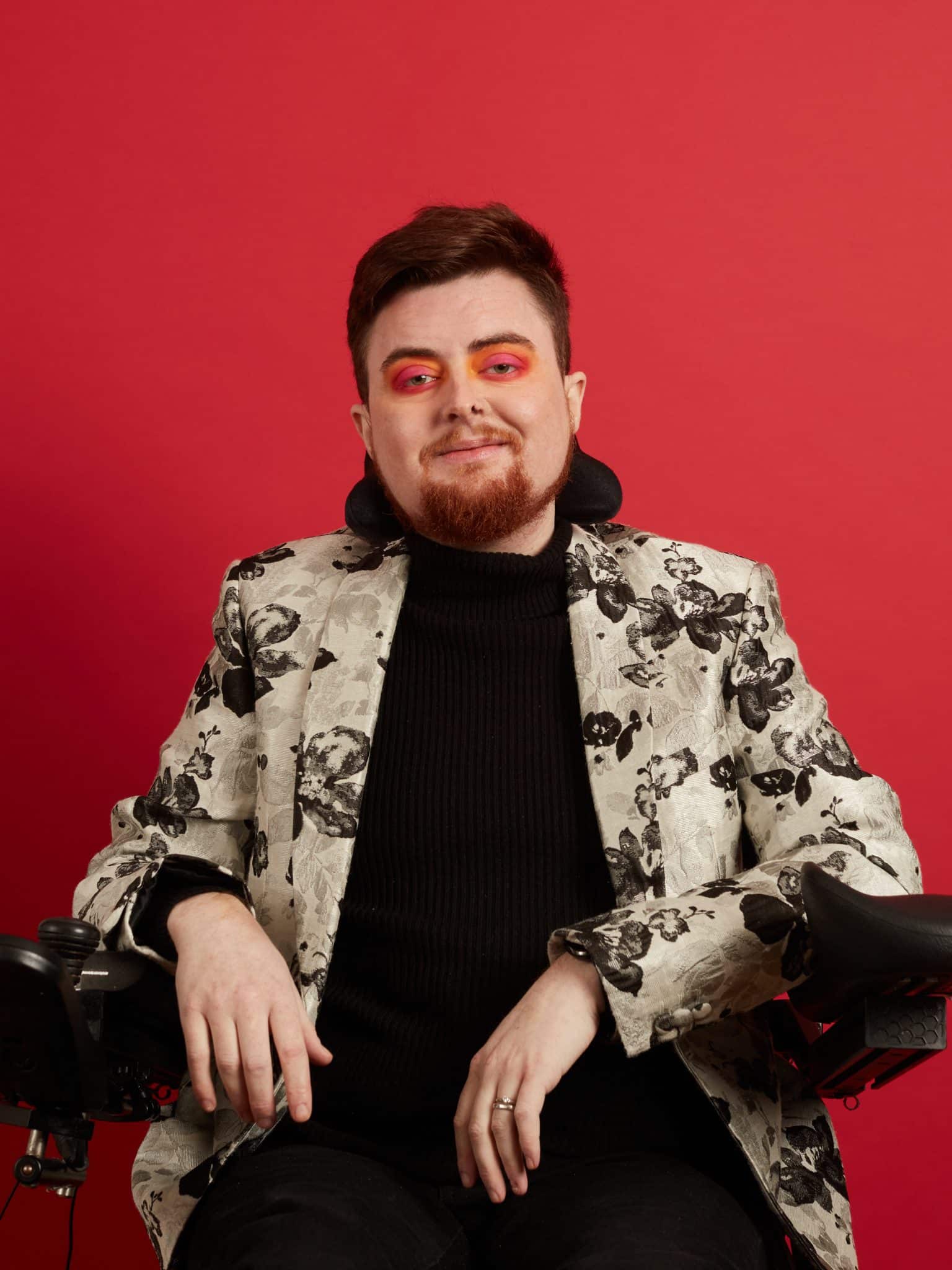
Jamie Hale is an award-winning poet, screenwriter and artist. In 2019, they founded CRIPtic Arts, a showcase focusing on supporting and developing the careers of d/Deaf and disabled artists
The CRIPtic Cabaret X NOT DYING are at once a celebration and an exploration of the complexities of life as a d/Deaf or disabled person.
Split into two halves features a performance of Jamie’s acclaimed solo poetry show NOT DYING followed by performances from folk singer Kit Dennis, comedian Sam Serrano, performer and poet Ashleigh Wilder and singer/songwriter Dennis Queen. Criptic Arts are headed to Trans Vegas at Home. I caught up with Jamie to hear all about it!
Tell us about CRIPtic Cabaret X NOT DYING
Where to start? This is very much 2.0 of NOT DYING. Version 1 began as a set of poems and went through a kind of development residency at the Barbican Centre. And then it was on at the Lyric Hammersmith and The Barbican back in 2019. So that was on as part of CRIPtic which I very much set up in 2019. Since then, I’ve been reworking and restructuring NOT DYING, its fundamentally a completely different show now which is great. it’s got a lot more in it. it’s a lot more nuanced it’s a lot bigger.
So I suppose I’ve kind of slowly been building that alongside slowly building CRIPtic. When I put the show on in 2019 at The Barbican, they did a lot of building work backstage to build, I think, the only backstage fully adapted dressing room with toilet shower and hoist at any theatre I know in the country. They did that because I needed them to, and they agreed. It became really clear to me that nowhere was going to make accessible opportunities for me and if I wanted them, then I had to make them for myself and everyone else. I was really lucky to have had The Barbican’s support.
You’ve mentioned before that NOT DYING can be quite a confrontational show for the audience, why do you think that is?
I want the audience to feel supported and safe to experience discomfort. I want to both expose a non-disabled audience to the ways in which they have benefitted from a disablist society, but I want to do that in a space that makes them feel comfortable to face that, rather than being so confrontational that people don’t feel able to engage at all. But at the same time, I want the disabled audience to really get the message of ‘I know you. I know the barriers you’re facing, were all in this together.”
Are you spurred on by the fact that these opportunities don’t exist for everyone?
What I’m doing is very much the next generation of a movement that has been around for generations. I can look at the work of people like Grey Eye, Neville Sheam and Jenny Zealy . I could look at more modern stuff like Vital Exposure or Little Cog. There are so many different theatre and art companies that have very much paved the way for me to do this. But what I really wanted was to be combining that kind of development work and showcasing work, taking people who have the skill and the passion and the ability and then giving them the support they need to be on a major stage
When CRIPtic first started looking for artists, where you surprised by how many there were?
I’ve always known that there would be a lot of people out there. But what’s been difficult in many ways, is that the more I’ve known about how many people there are out there, the more obvious it’s been how inaccessible the arts world is. About twelve years ago, C.N Lester and myself started a trans arts cycle called Transpose and I dropped out of it, and I wasn’t involved for years while C.N got it from the basement of a small pub into the pit at The Barbican. When I was invited back to perform there, I could build those relationships with The Barbican, that allowed me to say ‘hey, you know how this showcase of trans artists has worked? What if we did a show of deaf and disabled artists?’ and they took the chance on it and said yes. But had I not had that in, I would never have had the opportunity to put my show on.
Do you think you asking the audience to find their commonalities is one of the reasons why the show is so impactful?
There’s a kind of assumption of the disabled experience being a very separate and specific one, non-disabled audiences perceive it as being very separate and specific and don’t really connect it with their own experiences, but if one thinks about the impact of, even, aging on the body, let alone the impact of other illnesses and health conditions that can develop, there’s actually something very universal in the themes of NOT DYING, of having to face up to one’s own mortality and then having to find a way of moving through the world with greater physical limitations than you had anticipated.
It must have been hard when writing to hit the right moments and create tension in the right places? Hannah Gadsby is a big influence of yours and in her special Nanette, something she does really well is cut through the tension with a joke.
I found that really interesting in reflecting on how I time some of the more confrontational parts of the work. I’m not so much a natural comedian, so I didn’t find that I was using comedy to break the tension in the way that she does. But I’ve in this new version of NOT DYING, explored a lot more how to cut the narrative with multimedia and filmed segments, which I think then give it a different tension, they move the tension, even if they don’t break it.
It’s the idea of the social model of disability: you’re only as disabled as your environment makes you?
I very much try to work from the perspective of focusing on the societal disabling barriers, but there is also a sense to which I am trying to navigate an honest communication of what it is to live with quite profound and progressing physical impairments, and to try and touch on and engage with the complex emotional narratives that would come- that one might ascribe to an impairment’s effects. The social model is an incredible tool for assessing society, it is very much the framing for the show, but underneath that, I’m also trying to acknowledge that an impairment can itself has difficult effects. That regardless of society’s mediation, would still be difficult.
How do you deal with non-disabled people who try to use you for inspiration?
It’s really difficult because I don’t want people to think ‘isn’t it inspirational that despite everything, Jamie gets out of bed and gets out the house’ because it’s like, we all do that. I think it’s also that one of the things I want to be able to do with my narrative is to inspire other disabled people to know what could be possible in their lives with right care, support, and structures. To show people that if they’re not receiving those things, that could be so much a cause of why people might feel really unhappy. The inspirational thing isn’t me existing, but that by achieving a lot against significant barriers, I can highlight what the barriers are and hopefully inspire other disabled people to navigate those.
I think it’s about inspiration with purpose, that if people want to find it inspiring, I want it to be that they’ve found it inspiring for a purpose that will improve things for either themselves or other deaf and disabled people.
Because the show is so personal, do you have to set those boundaries with the audience?
It’s about really understanding how much emotion I give and understanding my show is fiction. It’s drawn from my lived experience; it’s based on my life, but I’ve also fictionalised it. this comes through a lot more strongly in this version where you’ve got a care planning meeting running in the backdrop to the second half. While that’s very much based on experiences both that I’ve had and that friends have told me about, at the same time it didn’t happen in the way I’m presenting it. I’ve used reality to design a script.
Some gay and trans disabled people might have a smaller view of what they think is possible, purely because they’ve never seen it before
I’ve always been lucky to have other trans friends who are that bit older, so I’ve not really felt like that has limited the possibilities in my life that much. Certainly I very much found that as my condition became more limiting, I expected less and less from my life. And I was very physically unwell because they hadn’t caught a couple of medical things that once they caught, my health stabilised very quickly.
But for me, I hadn’t expected anything because I couldn’t do anything. Partly getting on the correct treatment was life changing because it was also really about having the right care package but I went from, having enough care to go out once or twice a week for an hour or two to a twenty four hour care package and therefore went from doing very little with my time to working full time, running CRIPtic, running a charity and having my own creative freelance career.
I’m fully aware that the only reason I’m able to do that has been because I’ve had the right support in place. So, I guess that’s one of the things that I’ve really tried to come back to in the show with the engagement between me, in the face live and the fictional care planning meeting taking place in the background. To show that actually, those are the people who have the power to limit your opportunities far more than your underlying condition might.
The intersection of disability and identity is one that hasn’t really been explored much before. Do you find that people see you as disabled before anything else?
I think that some of it is about the constant desexualisation of disabled people, such that the idea of us having a sexuality is disturbing for people most. And that’s been something that I’ve really tried to pull through my show, has been this fun, challenging but also explicit section and I feel like that’s really important because of the universality of it and the idea of the audience finding discomfort in realising that they are the same as me
As disabled people, we’re often expected to make ourselves and our disabilities as small as possible, rather than being met where we are. I think one of the reasons your show is so impactful is because you refuse to do that, obviously you don’t have a choice
It’s about wanting to exist on my own terms and not be defined by models of success or outcome that are defined by non-disabled people’s success. I want to succeed in a crip way, and I want to do it by bringing people along with me. I’m still trying to understand what the disabled models of success are. So much they’re about community and interdependence and building and sharing and trying to find the beauty and the constrictiveness in the reliance on other people. I could, for example, spend all of my creative time working on my own projects, which are having various degrees of success, but they would be a lot more successful if I put more time into them.
But I’m not interested in being the one and only. That’s been done and it’s been done so well and when you look at some of the older disabled people in the arts, they really were the one and only because there were no other routes in. But now, there are more and more. I’m interested in building an eco-system of deaf and disabled people that is constructive and collaborative.
Assimilation is no longer the goal
I want to create crip spaces for the crip artists. At CRIPtic we’ve always had, from the outset, our commitment is to always be trying to prioritise people who face the highest access barriers. That’s very situationally dependent. How do I, in every space, really try and focus on giving the opportunities to people who will not get their needs met anywhere else. I want to be looking at the people who won’t get an opportunity they can do unless I provide it.
I think you’re well on your way!
Now I’m into the nervous wait to hear about funding for the next year, so we’ll see what happens with that.
We’re worth the money!
Oh we absolutely are! It’s another reason that inclusion hasn’t always worked brilliantly, I think it’s a very lazy argument people often make to be like ‘all the sensitivity aspects are broadly the same, we just do some training and then its fixed.’ When actually, what you need to do to provide an integrated equitable experience for disabled people is a lot more expensive than what you would need to do to provide the same thing for queer people.
I don’t think we as the disabled community should get bogged down in the differences between our experiences
We’re all ultimately facing the same disablism and that’s what I want the focus to be on. the idea that we should be challenging that disablism rather than being broken down into smaller groups and into groups that aren’t the binaries they’re made to seem like. So for me, my understanding of disability is a very materialist one. ‘do you face disabling barriers?’ if so yes, you are disabled.
What can audiences expect from CRIPTIC Cabaret X NOT DYING and Trans Vegas at HOME?
We’ve got four absolutely incredible artists on the cabaret line up and representing in many ways, generations of disabled people and of disabled communities. I’m really expecting pieces that unpack a wide range of elements, both of disabled and trans experiences, or just by existing as disabled and trans people on the stage, working with material that goes far outside that. We can tell whatever stories, we’re not limited to disability stories at all, we’re not limited to trans stories at all. I think people will laugh, I think, judging by previous performances people may cry, which made me feel quite embarrassed afterwards. But what
I really, I want I guess, is for people to feel like they’ve been welcomed into a world and a community that is giving them these performances as a gift. The gift is that of us sharing our intimate and inter-community experiences with everybody. I want people to feel like thieve been given a very intimate and personal gift.
I’m sure they will, and I think especially having disabled performers of all different ages and experiences is so important because disabled history isn’t taught.
I’ve been really lucky through disability arts to have the opportunity to get to know older disabled people and see their work and it just grounds you, it puts you in a position of a culture and a history and a tradition. It allows you to really be a part of that.
Do you have anything to recommend?
I’m going to cheat a bit, because I haven’t actually been able to see it yet, though I desperately want to, Birds of Paradise Theatre which are a Scottish disabled lead theatre company, have a, almost comedic, play called ‘Don’t Make Tea’ which is about the disability benefits system. They’ve managed to create something that is nuanced, critical, challenging but also absolutely hilarious. Vital Exposure are currently touring a play called Quiet Rebels which brings disability into it without being a play about disability which I think is really important, for disabled people to have lives and stories that go beyond just being disabled.
What is your favourite thing about Manchester and is there anything you would change?
I think my favourite thing about Manchester is the way that is has the community feeling of a small town, with the activity of a big city. The last time I was there, I found it really hard that a lot of the really nice fancy bars and restaurants and things didn’t have access, at least in the area I was staying, which was really gutting.
CRIPtic Cabaret X NOT DYING is at HOME on 11th November as part of TransVegas, tickets can be purchased here.
For more information on Trans Vegas, please click here.
- This article was last updated 2 years ago.
- It was first published on 24 October 2022 and is subject to be updated from time to time. Please refresh or return to see the latest version.
Did we miss something? Let us know: press@ilovemanchester.com
Want to be the first to receive all the latest news stories, what’s on and events from the heart of Manchester? Sign up here.
Manchester is a successful city, but many people suffer. I Love Manchester helps raise awareness and funds to help improve the lives and prospects of people across Greater Manchester – and we can’t do it without your help. So please support us with what you can so we can continue to spread the love. Thank you in advance!
An email you’ll love. Subscribe to our newsletter to get the latest news stories delivered direct to your inbox.
Got a story worth sharing?
What’s the story? We are all ears when it comes to positive news and inspiring stories. You can send story ideas to press@ilovemanchester.com
While we can’t guarantee to publish everything, we will always consider any enquiry or idea that promotes:
- Independent new openings
- Human interest
- Not-for-profit organisations
- Community Interest Companies (CiCs) and projects
- Charities and charitable initiatives
- Affordability and offers saving people over 20%
For anything else, don’t hesitate to get in touch with us about advertorials (from £350+VAT) and advertising opportunities: advertise@ilovemanchester.com
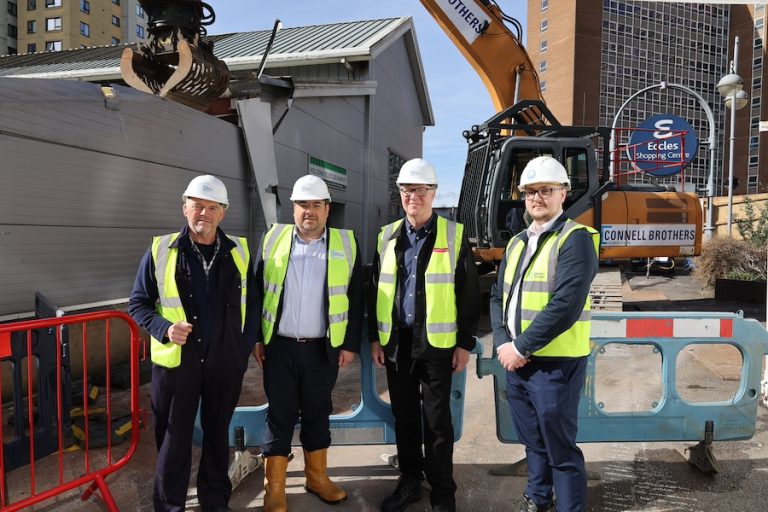
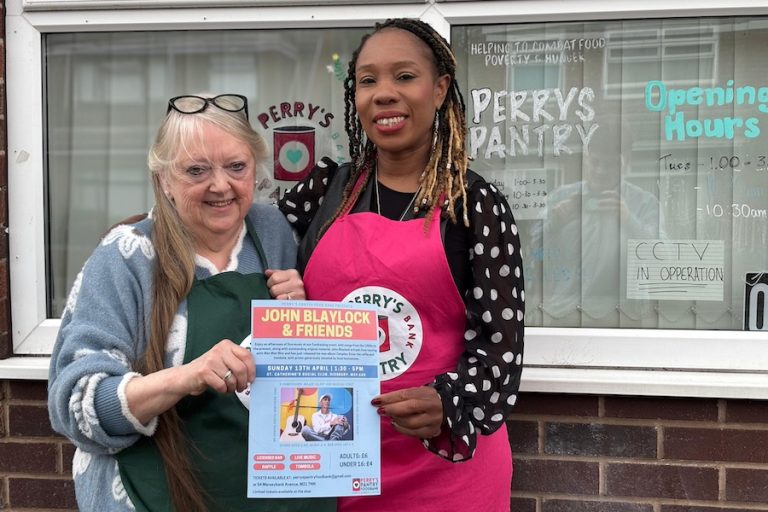
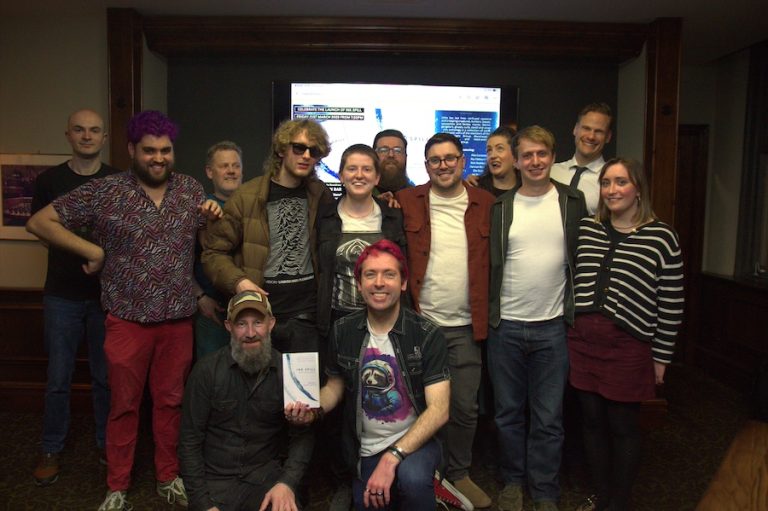
The eclectic group that’s been helping writers cut their teeth for 50 years

Manchester and Los Angeles prove that opposites really do attract

“His presence will be deeply missed” Children’s hospice bids farewell to their visionary CEO






